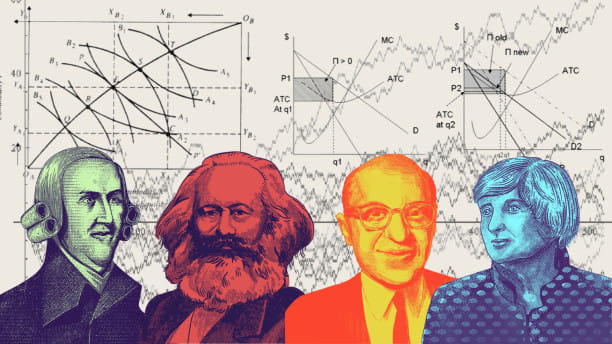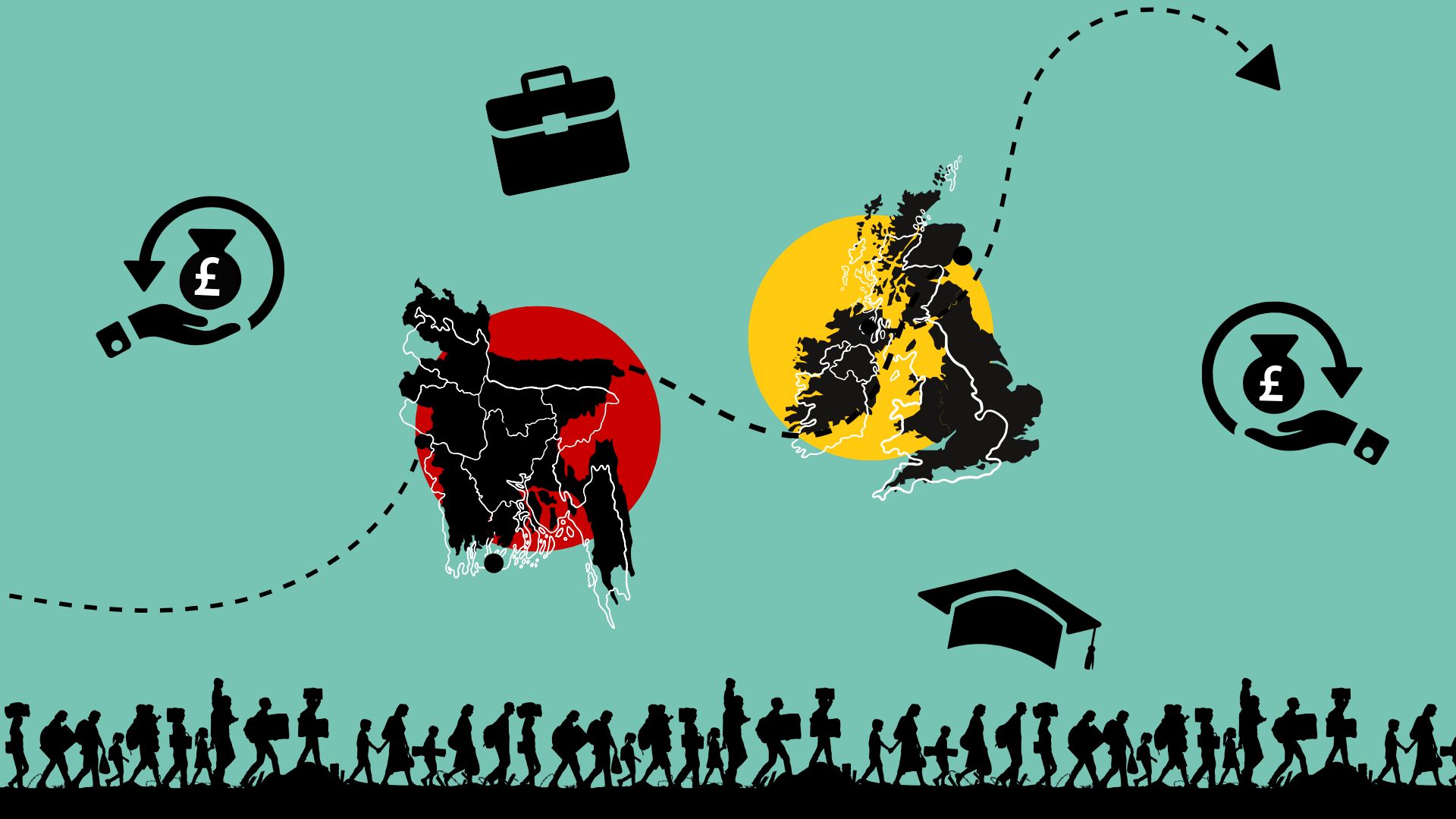Economics for all?

I think I have made a mistake. In my previous "letter from London" I referred to my reading of Will Hutton's book This Time No Mistakes, How to Remake Britain which is a timely and brilliant 371-page note to the incoming Labour government. As I do with impressive books, I have bought and shared copies of this book with others (which is how I came across it from my friend in York, Linda, a retired higher secondary economics teacher). So, what is my mistake? I bought a copy for my brother, my boro bhai, a retired academic civil engineer for his recent 82nd birthday. He is part way through it and inundating me with text messages on a near daily basis. Like any good engineer, he has an endlessly curious mind, and likes to pick things apart. He likes to wrestle a problem to the ground. And he is a progressive social democrat.
Now, I am not an economist by discipline, though I did head an economics department at Bath for five years since we had international development in the department's title. And I have worked closely with economists over the years, since being surrounded by them in the early days of the Institute of Development Studies at Sussex University when the non-economists were a tiny minority. And, I was tutored by a Cambridge economist, Philippa Lesley Cook, as a first-year undergraduate at Sussex University, where she had re-located. Every Saturday morning, she destroyed my weekly essay before re-constructing me for the following week's tryst. So, I have learned to survive in the company of economists, and there are a few in Bangladesh who might just attest to that claim.
So, what is my mistake with my respected elder brother? I have long felt that the majority of people across the world are fundamentally disempowered given that the prevailing political discourse always seems to come back to economics. It is everywhere, all around us, whether about inflation, interest rates, taxation and budgets, exchange rates and so on. And yet, what proportion of the electorate comprehends such economics? Expert commentators in the media are at ease when discussing the relationship between the above variables and others. They assume we know the underlying theory that connects demand, supply, inflation and unemployment. They assume we know about the impact of tariffs on exporting and importing countries, and who pays or receives those tariffs. They assume we understand trade theory. They assume we understand the impact of marginal tax rates on revenue receipts. They assume we understand what the ratios ought to be between GDP, tax take and sustainable national debt. The list goes on. I am sure most MAGA supporters of Trump in the US and Brexit voters in the UK have no clue about such issues. In the UK, buyers' remorse about Brexit is high.
In addition to seeking to educate my brother up to my amateur level and having Linda from York explain the paragraph above to me, I am also in touch with a retired economics professor, who was senior to me and who "facipulated" me into heading his department. David wrote an impressive book on altruism years back, and still writes about Malthus and Ricardo for fun (he is 88). So, when desperate, I also have the ear of a high-end theorist who can do regressions, but chooses not to! So here I am, sandwiched between these clever people as well as among many more in Bangladesh.
Thus equipped, what is my mistake? My brother, never satisfied with brush offs, will not settle for the secondary discourse of accepted assumptions between economic variables. He wants to know why? And he is asking me, all the time through numerous text messages and phone calls including what page he has reached. Well, reader, I am doing my best, additionally supported by Google and Wikipedia. I have become an auto-didact about economics again.
But here's the serious point. Do we have to be economists to be citizens? If so, how are we to be empowered with enough economics to understand political choices and not be ruled by the technique of a tiny elite of professional economists, or the antics of those who think they know how an economy works, like the new incumbent in the White House? For years, when I was the head of economics and international development at Bath University, I asked my colleagues, including David, how this empowerment could be done. They could start by holding regular explanatory seminars for other staff across the university. They could create a regular national broadcasting slot (in our case, the BBC) in which some semi-"economerate" individuals ask folks like Linda in York or David to deal with the week's main economic conundrums in plain language. As a kind of development anthropologist, I am often criticised for using complex language! Maybe guilty as charged, but have you listened to economists and THEIR jargon? They don't want us to understand. They just want to talk amongst themselves and retain their monopoly over this area of knowledge—rather like the monopolies of lawyers and their incomprehensible legal speak.
So, I see my brother as the everyman in this aspect of empowerment. We need common sense interlocutors to re-establish a wider sense of participation and citizenship in what has become an elitist and exclusionary discourse about the fundamental political choice questions that affect us all. And if this resembles a fantasy in a so-called educated country like the UK, then how does this problem map onto the plethora of other societies across the world? What chance do ordinary people have of controlling oligarchic power, not just of the demagogues and tech bros, but of the language through which political discourse is constructed and framed? We are a long way from empowerment.
And yet again, Bangladesh may be showing the way a little. I have engaged with and worked with many of its economists in academia, think tanks and the government itself. It seems to me that they are less obsessed with seeing every passing data-set, however dubious, as an opportunity for data mining in pursuit of another "academic" paper deploying regression analysis. Instead, many colleagues in Bangladesh are more willing and indeed able to talk in plainer language whether on TV talk shows, or in public seminars and the press. In a sense, these Renaissance performers are able to transcend the formal markers of their discipline and offer themselves as political economists—debating in more inclusive ways the issues of the moment whether poverty, trade policy or the fragility of the country's macroeconomy in ways in which at least me and my brother can understand. The recent sequence of BIDS annual conferences held in early December every year has been a good example. I have closely witnessed the last four of them and have not felt excluded. So, let's have more everymen, like my brother, and everywomen, like my friend Linda from York, whose successful career has been built on empowering sixth formers.
Dr Geof Wood is a development anthropologist and author of several books and numerous journal articles, with a regional focus on South Asia. He is also emeritus professor of international development at the University of Bath, UK.
Views expressed in this article are the author's own.
Follow The Daily Star Opinion on Facebook for the latest opinions, commentaries and analyses by experts and professionals. To contribute your article or letter to The Daily Star Opinion, see our guidelines for submission.




 For all latest news, follow The Daily Star's Google News channel.
For all latest news, follow The Daily Star's Google News channel. 

Comments